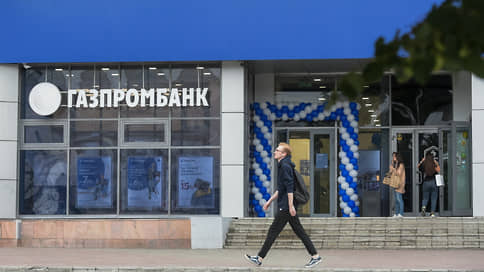Gazprombank doubled its capital without offering shares
[ad_1]

In July, Gazprombank doubled its authorized capital to RUB 496.1 billion. But the replenishment did not take place in the most common way: at the expense of the bank, and not as a result of the placement of shares. As a result, Gazprombank’s regulatory capital grew by only 1% and there was no impact on its ratios, which continued to decline. Experts see preparations to attract a new investor as a possible explanation for the bank’s actions.
As follows from the calculations of Kommersant and the analysis of bank statements for July according to RAS, Gazprombank (GPB) sharply increased its authorized capital in July – by 249.2 billion rubles, to 496.1 billion rubles. This is the only bank that increased the rate in July. According to the Central Bank, this month the total authorized capital of all Russian credit institutions increased by 248.8 billion rubles, to 3.4 trillion rubles. Thus, the entire increase in the system was provided by the GPB.
However, the bank did not do this in the most trivial way, it follows from the reporting. In particular, the total (regulatory) capital of the bank increased by only 10.9 billion rubles over the same month. (1.1%), up to 993.6 billion rubles. In terms of this indicator, the bank ranks third in the country (only VTB and Sberbank have more capital). The GPB did not respond to Kommersant’s request.
Banking expert Aleksey Nechaev notes that the authorized capital of GPB increased by almost the same amount, by which the additional capital and retained earnings decreased in total. He believes that the bank “spent” all its share premium (included in the “additional capital” indicator and is not disclosed separately in the truncated reporting that the Central Bank now publishes) and a third of retained earnings on increasing the authorized capital.
Thus, the expert is sure, we are not talking about additional capitalization of the bank, the growth in the amount of regulatory capital over the month was insignificant (slightly more than 1%). There was no impact on H1 (capital adequacy ratios), as well as on N6, H25 (maximum risk limits per borrower or group of related borrowers and per person associated with the bank), he concludes.
The replenishment of the authorized capital usually occurs as a result of an additional issue of shares, but the method used by GPB, according to Mr. Nechaev, “cannot be called widespread.”
In general, in the banking system of the Russian Federation in July, the amount of share premium of banks fell by almost a third (32.7%), or 631.8 billion rubles. But it decreased in July not only due to the GPB. In particular, 439.4 billion rubles. were spent by VTB, which partially covered the loss of 2022 in the amount of 756.8 billion rubles with these funds. (such a decision was made at the annual general meeting of VTB shareholders on June 30). In addition, the system as a whole increased the amount of gratuitous financing included in the capital (by 89 billion rubles, to 362.1 billion rubles).
As a result, the same GPB has no positive impact on capital ratios for the month. So, for example, as of August 1, the adequacy ratios for basic, fixed and total capital (N1.1, N1.2 and N1.0) amounted to 5.65%, 7.38% and 9.25%, respectively, having decreased in July by 0 .3–0.38 percentage points.
The last additional capitalization of GPB, which was known, took place in 2022 (see Kommersant dated August 8, 2022). Then in the middle of the year the bank received 50 billion rubles. from the National Welfare Fund (NWF). With funds from the National Welfare Fund, 50 million preferred shares of GPB were purchased at a nominal value of 1,000 rubles per share. In 2022, the bank was actively growing. At the end of May, analysts from the Expert RA agency in a rating report noted that GPB had “a decrease in capital adequacy ratios and a loss absorption buffer against the backdrop of a strong growth in corporate lending in 2022.”
Kommersant’s interlocutors are sure that in the case of the July capital growth of GPB, the motives are not dictated by regulatory requirements. Denis Taradov, a partner at the Unicon audit and consulting group, admits that the reason for the increase in capital may be plans to further attract a new investor, “in order to dilute his share without affecting the redistribution of shares of current shareholders.”
[ad_2]
Source link





